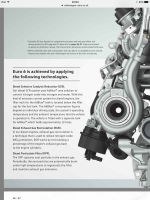You say untrue, but all my research tells another story about the quality of oil and the distance it is used in an engine.
This from the Oil Consumption page on Facebook for instance;
Craig Sharp I used to work in a Laboratory doing oil analysis a few years back. I also looked at a van yesterday and noticed that the service intervals in the van are about 20000km is this correct?. The reason i ask is NO and i mean NO oil on the market can last that long, Most oils we found were lucky to last 5-7000km before they were affected by viscosity and contaminates. Every car and motor bike I've owned has had oil changes at 5000km or there abouts. Oil is the live blood of your vehicle I would recommend changing it every 10000km at the most.
This is further backed up by various sites on the web, such as
http://www.clark.com/oil-change
or this:
The Mobil 1 brand includes synthetic oils designed for specific purposes such as high mileage vehicles, racing engines and turbo diesel trucks.
The majority of auto manufacturers call for oil changes at intervals of 7,500 or 10,000 miles on new passenger vehicles. The longer intervals are often found in vehicles where the owner's manual specifies synthetic oil or a synthetic blend. Jaguars using synthetic oil have a 15,000 mile change schedule.
https://www.reference.com/vehicles/...l-ff733dcc4e65aed0?qo=contentSimilarQuestions
OK, they are American sites where most drivers seem to change their oil at 3000 miles, and the mileage available for fully synthetic oil is greater than natural oil, however, they all indicate a lower mileage than the VW 20k. So I am assuming this figure is a sop to the consumer rather than anything based on fact?
Alan
















